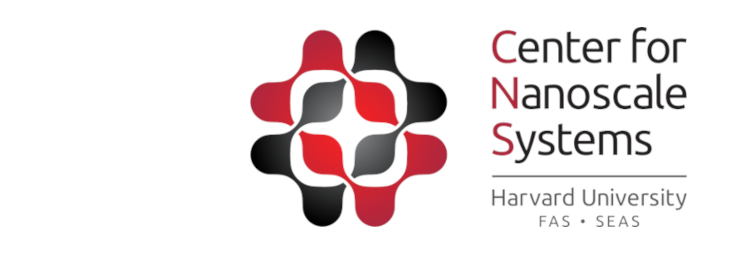

About
Harvard University CNS is an “Open” Core Research Laboratory devoted to the Support of Transformative Nanoscience. With our primary focus on Nanofabrication, Imaging and Nanoscale analysis, we at a “one stop shop” for all things nano.
01
WHAT IS CNS?
CNS is the Center for Nanoscale Systems, which is a part of the Faculty of Arts and Sciences (FAS) at Harvard University. Until April of 2005, the Center existed under a different name, the Center for Imaging and Mesoscale Structures (CIMS).
CNS was created by FAS in 1999 to assist and support the research community of Harvard University researchers and collaborators. The inclusion of CNS in the Nanotechnology Coordinated Infrastructure (NNCI) in 2004 has expanded that function to include any and all other members of the larger research community both local and national, academic and non-academic who conduct research in any aspect of the large and growing field of nanoscale science.
CNS accomplishes this mission by purchasing, operating and maintaining large, centralized scientific facilities for use by users. CNS also provides training, and assistance to users to ensure that the next generation of scientists has the knowledge to answer the questions being raised by the research of today. Development of new advanced facilities for the imaging and fabrication of nanoscale structures is also a high priority for CNS.
While operating user facilities is a large component of CNS’ operation, it is not the only contribution of the Center to the scientific community of Harvard and beyond. For example, CNS hosts seminars and provides seminar support to Harvard faculty members; hosts NSF Research Experience for Undergraduates (REU) students; and has CNS technical staff members who teach and guest lecture in Harvard classes.
02
WHO WE ARE
03
WHERE IS CNS?
The Center for Nanoscale Systems has two locations:
Our original facility is located at 11 Oxford Street just north of Harvard Yard in the Laboratory for Integrate Science and Engineering (LISE) building. CNS started moving into newly completed LISE building in July of 2007. LISE is the home to all of our nanofabrication facilities, along with some of our Imaging and Analysis labs.
Our second location is at the Science and Engineering Complex (SEC) in Allston. Our facilities in this building were opened in 2021. These include materials characterization, soft lithography and imaging spaces.
Administrative Office of CNS
We are a very busy office but never too busy to assist users, staff or Faculty. If you ever have any questions or concerns regarding CNS policy, procedure, or any other aspect of the Center, please feel free to stop in and speak to one of us. Also, feel free to call or email us with your questions or concerns. Although CNS is not a retail business, we utilize some fundamental business principles in the way we interact with the CNS/NNCI user community. We view CNS/NNCI Users as our “clients” and we are committed to providing a very high level of prompt, courteous customer service to those who work for or with CNS.
A sampling of the work that goes on in our office
- Managing the CNS/NNIN User Program
- Processing monthly billings for facilities usage
- Monitoring CNS sponsored program accounts
- Acting as a liaison with NSF and NNIN home office at Cornell
- Coordinating all CNS procurement activity
- Monitoring CNS Seed Money and Visiting Scientist Projects
- Providing meeting support for CNS management and staff
- Resolving issues and answering CNS Staff questions
- Preparing reports on CNS activities for Harvard and other visiting committees
- Coordinating land and cell phone lines for the Center
- Maintaining the CNS Scheduling Tool
- Maintaining CNS Website
- Tracking and reporting user statistical data
- Creating budgets and tracking/reporting on expenditures
- Financial tracking of all CNS accounts
- Arranging for talks, seminars and CNS visitors
- Answering questions from current and potential users
- Assisting with CNS marketing and publications
- Acting as the human resources liaison with FAS HR
- Maintaining an inventory of office supplies for all CNS staff
CNS Core Mission
The Center for Nanoscale Systems (CNS) was created to support a very clear vision: The development of a collaborative multi-disciplinary research environment to support of the creation and evolution of world-class nanoscience with the support of advanced shared facilities and technical expertise. This center serves both the Harvard research community, as well as external researchers from academia and industry.
Our Core Values:
- Facilitating leading-edge, multi-disciplinary, research and education in the areas of fabrication, imaging, and characterization of nanoscale structures, across the disciplines of applied physics, biology, chemistry, engineering, geology, materials science, medicine and physics.
- Creating a leading collaborative nanotechnology research community by providing shared instrumentation facilities and infrastructure, expert staff, synergistic meeting places, and educational opportunities conducive to productive scientific engagement.
CNS strives to provide world-class tools for world-class research, fostering a strong competitive edge for our nation’s investigators. We serve a broad, diverse, national set of users who are preparing the nation to meet the needs of next generation technologies.
NNCI
The NNCI is a National Science Foundation program that consists of 16 institutions that together form a national network of facilities available for all academic users. For more general information regarding the NNCI program, please see the NNCI section of our website or go to the NNCI main web page at www.nnci.net.
Since the core mission of the NNCI is to create an open national user facility network, CNS welcomes users from other academic and non-academic institutions to become Users of CNS facilities.
All of our facilities/tools are considered part of the NNCI program. Enrollment in the CNS/NNCI User Program is required in order to use any tool, lab, or service provided by CNS.
If you are interested in enrolling in the CNS/NNCI User Program, please proceed to the page How do I become a CNS/NNCI User?

